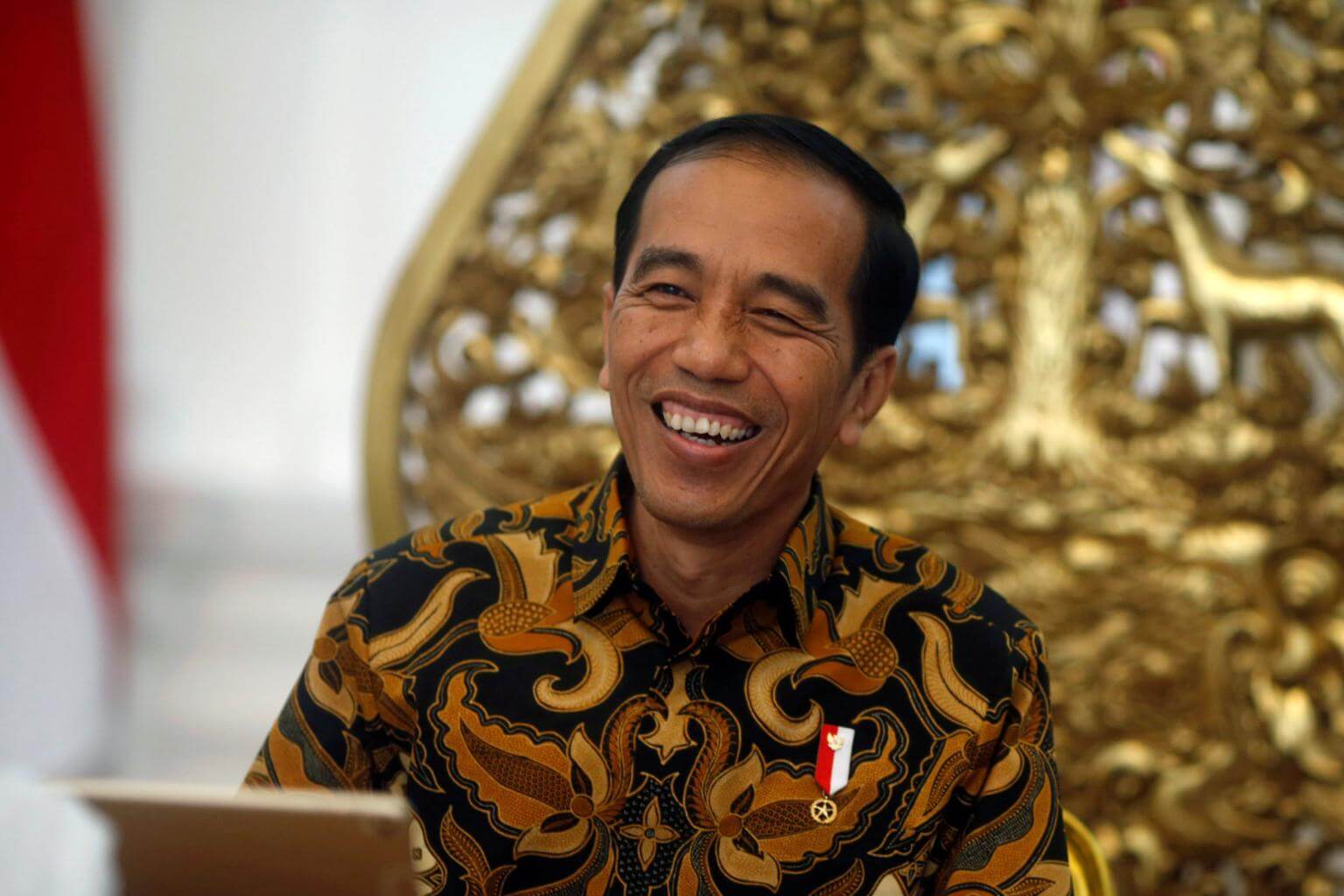As Indonesia's parliament passes election Bill, opposition eyes Jokowi's coalition
Sign up now: Get insights on Asia's fast-moving developments

Indonesia's President Joko Widodo gestures during an interview with Reuters in Jakarta, on July 3, 2017.
PHOTO: REUTERS
Francis Chan
Follow topic:
JAKARTA - Lawmakers have finally agreed on an election Bill that not only preserves Indonesia's more recent practice of open elections but also the presidential thresholds for the next general election.
The latter means political parties will need at least 20 per cent of the seats in Parliament, or a minimum 25 per cent share of the popular vote, before they can nominate a presidential candidate in 2019.
The passing of the Bill after a long-drawn debate was seen as a boost for President Joko Widodo's re-election bid. The former furniture businessman, with no ties to the old political or military elite, became President in 2014 based on the same system and the status quo would favour his run for office again, political observers have said.
With the higher thresholds, the presidential contest in 2019 will be a tighter two- or three-way fight.
But the move revealed some fault lines in the ruling coalition, after the National Mandate Party (PAN) joined the opposition Gerindra and Prosperous Justice parties, as well as the neutral Democratic Party, in a dramatic walkout to boycott the vote. The group wanted the minimum seat and vote-share requirements scrapped to pave the way for parties to field their own candidates, or at least do so with smaller coalitions.
So unless there is a major shake-up in the current coalitions, where the ruling group has almost 70 per cent support in the House, it will likely be a two-horse race in 2019, with Mr Joko pitted against a candidate from the opposition camp.
It is no secret that Gerindra chairman Prabowo Subianto fancies another run for the presidency, and a plan to expand the opposition coalition is already in play.
Gerindra has reached out to Democratic Party chairman Susilo Bambang Yudhoyono for a meeting to discuss an alliance for 2019. But a real game changer will be for Mr Prabowo to entice those in the ruling coalition to switch sides, and tip the scales against Mr Joko, popularly known as Jokowi.
One of them could be PAN, which has 48 out of 560 seats in the House.
But such a move is unlikely to weaken Mr Joko while he has the backing of bigwigs Golkar and the Indonesian Democratic Party of Struggle, and Islamic parties such as the National Awakening Party and United Development Party.
Political analysts like Indonesian Survey Institute executive director Dodi Ambardi, however, noted the mounting pressure on Mr Joko from conservative Muslim groups, including a growing pool of religious hardliners behind several street protests in Jakarta since last year.
The rallies also led to the defeat of Mr Joko's ally, then Jakarta governor Basuki Tjahaja Purnama, by rivals who critics said had played the religious card during the gubernatorial election this year.
The recent government ban - signed off by Mr Joko - on the Hizbut Tahrir Indonesia, a group that wants to establish an Islamic caliphate, also threatens to alienate Mr Joko from his Muslim critics.
Australian National University academic Greg Fealy said Mr Joko could face further issues if the ban on Hizbut Tahrir Indonesia is overturned by the courts. "That could play into the efforts of some Islamist organisations to undermine Jokowi in the run-up to the 2019 election," he told Bloomberg News.
So to ensure a second term, Mr Joko will have to strengthen his support base of moderate and conservative Muslim voters, said Mr Dodi. "Jokowi will have to try to gain more support from Islamic-based parties for his coalition so that the next presidential election will not become a battle between nationalists and Muslims."
tkchan@sph.com.sg

